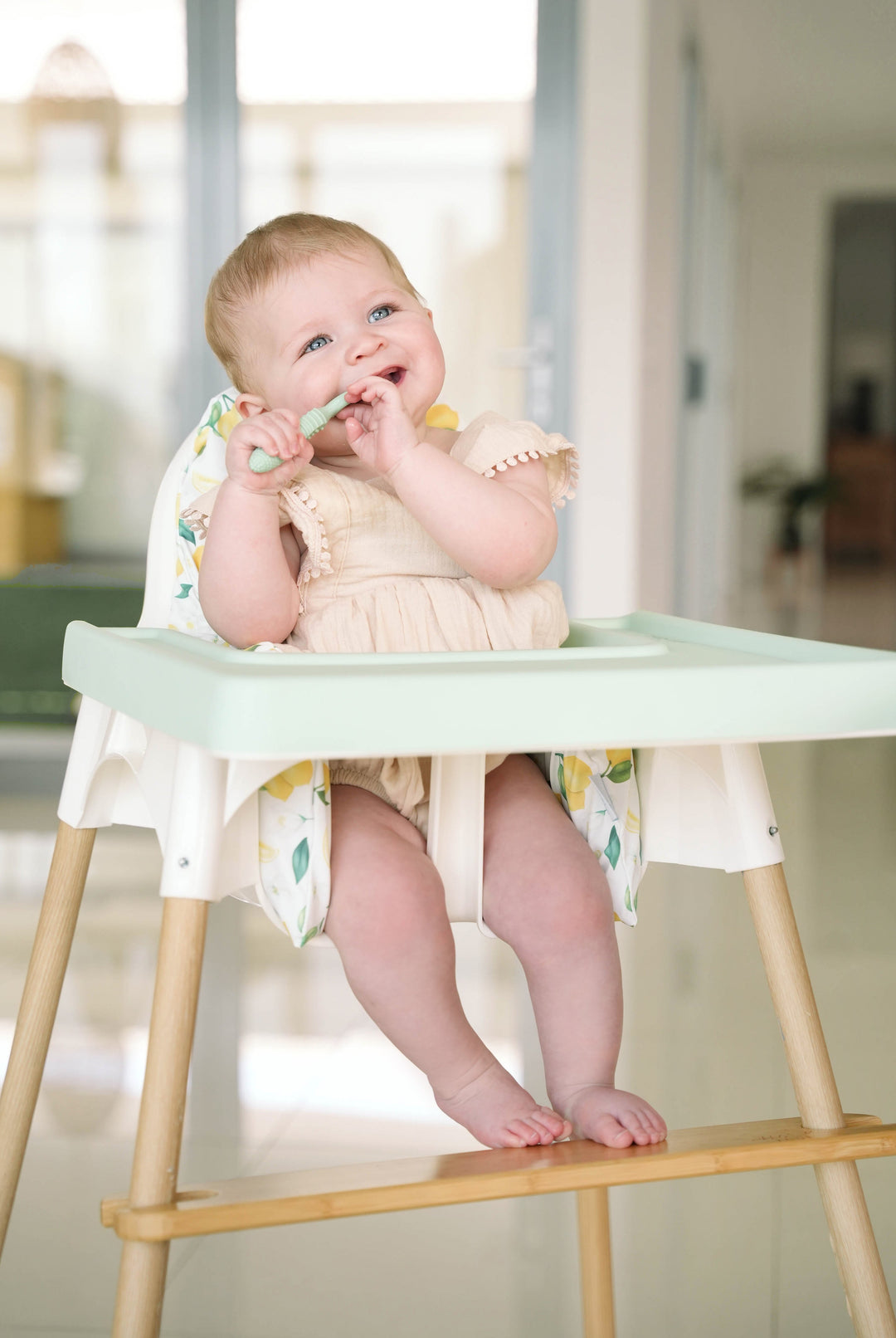On Footrests and Eating in the Ikea High Chair
A blog to discuss the benefits of children feeding best with solid foot support, either via a fixed footrest (in some highchairs) or using our product the the Footsi which is specifically designed as a footrest for the Ikea Antilop high chair (or similar highchair, like Kmart Quadro or Target Snacka). Feel free to join in the discussion. We welcome your feedback.
After a doing some research on the feeding habits of our own daughter in the Ikea high chair, we noticed that her concentration improved when she had something to rest her feet on. In the beginning we Googled "footrest for the Ikea high chair" or "Ikea high chair footrest" and there were/are plenty of DIY pages that show you how to build your own using a tea towel, elastic and even a big wooden block. But we found these solutions to be very short term and mostly not portable or adjustable. So, after many months of testing our own products, the Footsi was invented. The Footsi is a portable and adjustable footrest for the Ikea Antilop high chair. We wanted to make it portable so it is a solution which can be taken anywhere (restaurants, cafes, when visiting friends and family who have the Ikea high chair, or similar); and it is also adjustable, so it may be used for multiple children, or as the child grows.
Having a footrest on the Ikea high chair has really improved our daughters feeding habits, no longer having her feet dangling or swinging up and down madly and she actually loves sitting in it, whereas before we had a Footsi installed, she wanted to sit on Mummy or Daddy's lap.
What we have also found since is there are quite a lot of blogs and journals on the benefits of children eating with feet stability, for example from Dr Greene:
"When children sat in the chair with no footrest, they seemed to move more because they had less support for their body, resulting in fidgeting as they tried to get comfortable while performing the task. The body stabilization results between the two conditions also showed a statistically significant difference. Children moved more in the no footrest condition because they were trying to stabilize their lower bodies by wrapping their feet around the chair legs or trying to use the small cross bar beneath the seat, whereas in the condition with the footrest they had a place to rest their feet.“
There are very similar blogs and journals from PhD and paediatricians who advocate similar views. We welcome your feedback also. Many thanks for reading this blog.
*The Footsi™️ is design protected in the following regions through its design name "Baby Chair Footrest" and respective design numbers:
Australia: 201816601
USA: 29/690,157
EU/UK community registration: 006375853
Both the Footsi™️ and Pimp my high chair™️ names have been Trade Marked in Australia.




